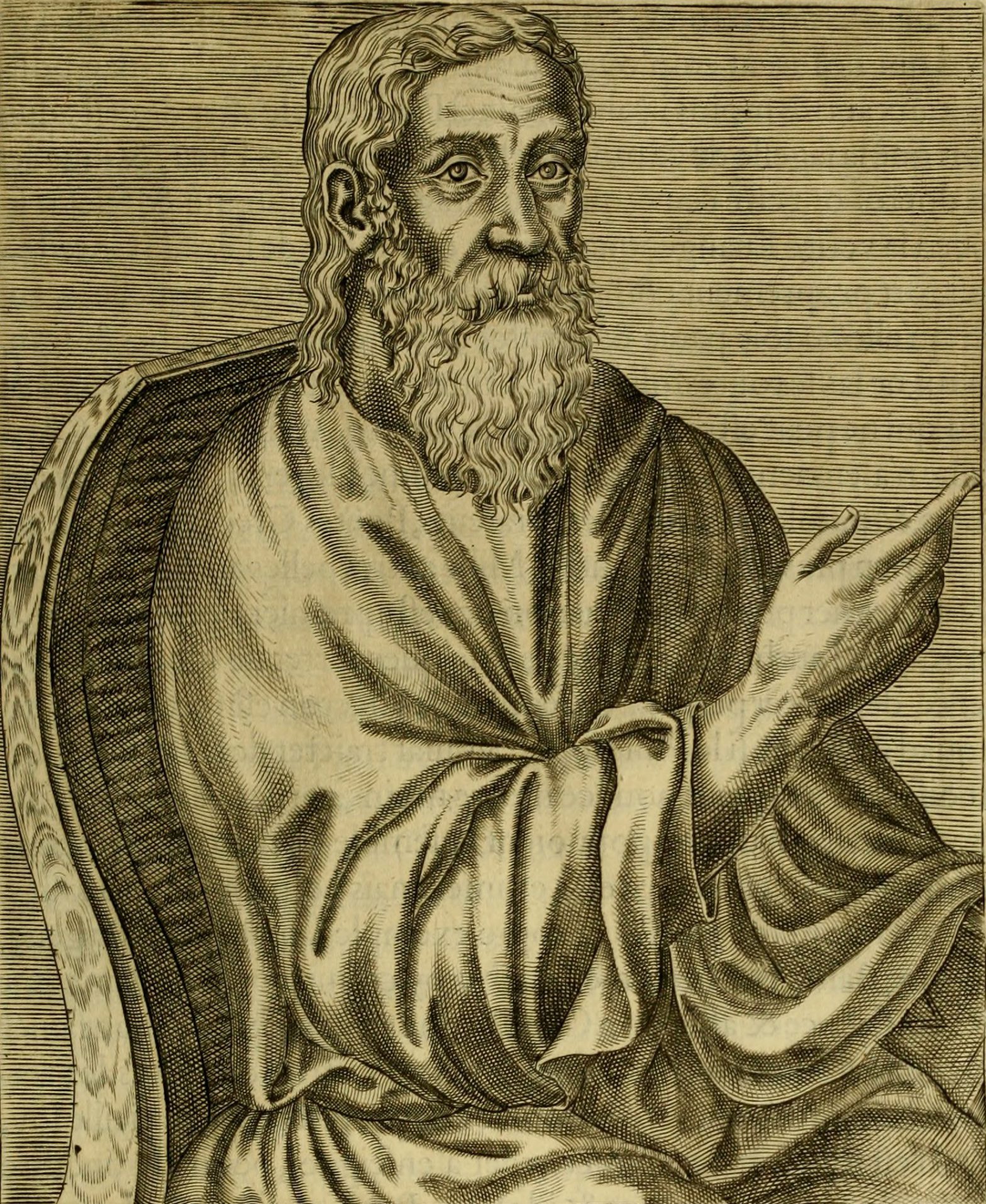December 5 is the commemoration in some traditions of Clement of Alexandria (ca. A. D. 150-215). Clement is the earliest proponent of classsical Christian education that we know much about.
The son of apparently well-to-do pagan parents and born in Athens or possibly Alexandria, he was educated in Greek philosophy and literature as a youth and was well acquainted Greek religions. He rejected these as morally vacant and false guides to a virtuous life, and began traveling throughout the eastern Mediterranean, seeking insight from religious teachers in Ionia and Caesarea. Arriving in Alexandria, he became a student of Pantaenus at the Christian school that prepared catechumens to make their baptismal vows. Clement not only became Christian, he continued his studies in the faith and was ordained to the priesthood, succeding Pantaenus as instructor to catechumens, and writing extensively about the relationshp between pagan philosophy and Christian faith. Eusebius of Caesarea, writing two generations after Clement, lists at least a dozen of Clement’s works, three of which survive in their entirety:
• Protrepticus, or The Exhortation to the Greeks, which gives us a history of Greek religions and its failings, as a prelude to encouraging Greeks to convert to Christianity .
• Paedagogus, or The Tutor, which portrays Christ as the teacher, particularly of practices necessary for leading a moral life, and he identifies Biblical and classical Greek figures he finds model this life. His description is unusual for his time in that he gives equal support for the role of women as leaders and teachers as he does for men.
• Stromata, or Miscellanies is a collection of thoughts, perhaps notes Clement intended for a more rigorous treatment of theology to support the ideas in Paedagogus.
n this last work, Clement defends the study of Greek and pagan philosophy because they can provide tools for the Christian to use in defense of the faith. He is well aware there are those who disagree with this opinion. In the Introduction to the Stromata, he remarks:
Some, who think themselves naturally gifted, do not wish to touch either philosophy or logic; nay more, they do not wish to learn natural science. They demand bare faith alone, as if they wished, without bestowing any care on the vine, straightway to gather clusters from the first. Now the Lord is figuratively described as the vine, from which, with pains and the art of husbandry, according to the word, the fruit is to be gathered.
We must lop, dig, bind, and perform the other operations. The pruning-knife, I should think, and the pick-axe, and the other agricultural implements, are necessary for the culture of the vine, so that it may produce eatable fruit. And as in husbandry, so also in medicine: he has learned to purpose, who has practiced the various lessons, so as to be able to cultivate and to heal. So also here, I call him truly learned who brings everything to bear on the truth; so that, from geometry, and music, and grammar, and philosophy itself, culling what is useful, he guards the faith against assault.
(The Stromanta, Book I.9 Translated by William Wilson in the Ante-Nicene Fathers – https://www.newadvent.org/fathers/02101.htm)
Indeed, for Clement, the study of philosophy, by which he means all pagan knowledge, is necessary for proper discernment of the Scriptures. He lists the major Greek philosophers from Thales of Miletus and the Ionian teachers through the Eleatics like Zeno and Parmenides, down to Aristotle, Plato, and their successors, commending them for study. It is important to be acquainted with many ancient philosophers, not just one or two, in order to learn about the many branches of music, grammar, logic, history, physics, astronomy, and mathematics.
Clement believes that this knowledge was God’s gift to the Greeks, as revelation was His gift to the Hebrews, and therefore it behooves the Christian to study even pagan philosophical works well, and to become equipped to understand the Scriptures more completely and to defend the faith well.

